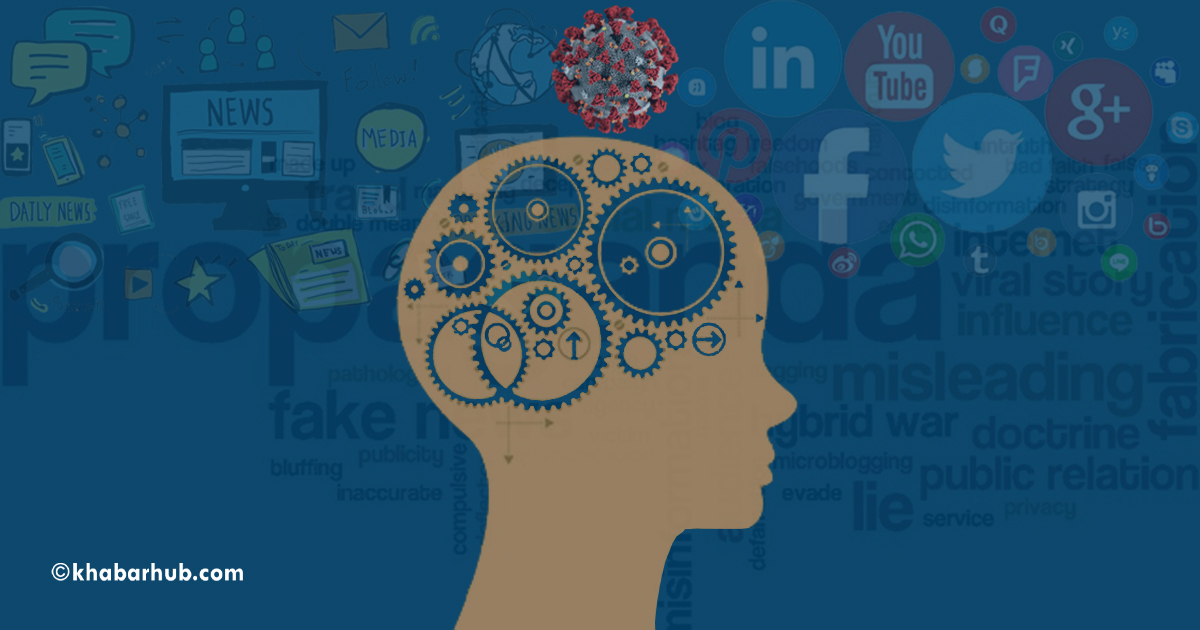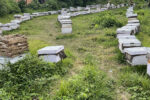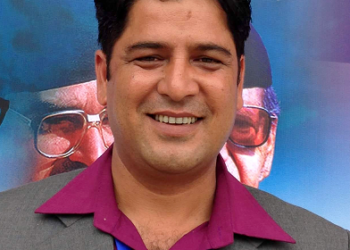The Director-General of the World Health Organization, Tedros Adhanom Ghebreyesus, very correctly said, “We’re not just fighting an epidemic; we’re fighting an infodemic,” referring to fake news that, “spreads faster and more easily than this virus.”
Adding to this, WHO explained that an infodemic makes it difficult to identify a problem because it provides excessive information (misinformation and rumors) about a problem, which can hamper an effective public health response and create confusion and distrust among consumers of this information.
Misinformation about the disease reached around the world before the virus did. An influx of news reports, op-eds and messages about COVID-19 has resulted in the dissemination of widespread misinformation.
This is negatively affecting healthy behavior among people, and is inculcating a sense of panic. Consequently, it is dwindling the legitimacy of scientific discovery around the vaccine/cure for this disease, creating the Coronavirus into a social stigma – which has led to reduced compliance with the norms of social distancing and self-quarantine.
There have been numerous instances of information misinterpretation, in the form of the proverbial ‘Chinese whisper’, as news traveled from one platform to another.
The limited authentic sources of information (both national and international) are unable to fight the hoaxes which other sources such as news channels, radios, social media platforms including WhatsApp, Facebook and Twitter have spread across.
Communicating the (Mis)information
According to the WHO, COVID-19 is an infectious disease caused by the newly discovered coronavirus. Most people infected with the COVID-19 virus will experience mild to moderate respiratory illness and recover without requiring special treatment.
Older people and those with underlying medical problems like cardiovascular disease, diabetes, chronic respiratory disease, and cancer are more likely to develop serious illness, making it a major public health concern and a challenge for existing health systems.
“This is our first social media pandemic,” says Carl Bergstrom, a professor of biology at the University of Washington, who researches disinformation. Even the most basic information – about the numbers and statistics of cases reported – is being misreported by many platforms.
Twitter, WhatsApp and Facebook – three platforms which are excessively used by large numbers of people – are both sources and causes of this infodemic; among others.
There have been numerous instances of information misinterpretation, in the form of the proverbial ‘Chinese whisper’, as news traveled from one platform to another.
In the case of how to use a mask, the basic and easy pieces of information were misinterpreted, which created a situation of panic among people.
For example, the WHO released ‘advise’ on how and when to use a mask. The advice flagged that a mask should be worn by those who are infected or are taking care of a diseased person, or by those who are coughing and sneezing, and not by all.
A mask is only effective if used along with frequent hand wash with soap or alcohol-based sanitizer rub. This particular piece of advice was interpreted and adopted differently by different people.
The risk lies when the media/social platforms and information generators misinterpret or broadcast a piece of information with partial facts and no scientific evidence behind it.
For the general public, the principal sources for updates and medical information seem to be WhatsApp and Facebook, messages on which have convinced people that masks are necessary to protect themselves against the virus.
At the same time, these messages leave out important details about the masks, such as wearing it to cover the nose, to not fiddle with the masks, cleaning it with a sanitizer or soap water after usage, etc.
Further, this resulted in panic-buying of N-95 masks and sanitizers in many cities, where not even a single case was then reported.
Consequently, the frontline health workers and health care facilities were put in a precarious position in the absence of adequate supply of masks, which disrupted the supply chains and of course, skyrocketed the prices of masks because of their negligible availability.
Twitter, WhatsApp and Facebook – three platforms which are excessively used by large numbers of people – are both sources and causes of this infodemic; among others.
Recently the Ministry of AYUSH (Ayurveda, Yoga & Naturopathy, Unani, Siddha and Homoeopathy) and the Press Information Bureau (PIB) – the principal information dissemination channel for the Government of India – advocated treatments offered by alternative medicine systems like Ayurveda and Homoeopathy against the new Coronavirus, without providing any supporting scientific evidence or clinical testing data.
Adding more fuel to the crisis, news and videos particularly targeting Muslim groups/individuals undertaking unhealthy behavior to spread COVID-19, made rounds. Such data largely created communal and political turmoil, at a time when people’s sole attention must be focused on fighting the pandemic.
Strategizing Relevant and Effective Health Communication
The challenge for government authorities and regulatory bodies is to differentiate among pieces of information and those which are false and harmful.
The Government, with support from leading media houses and online social media platforms like WhatsApp, Twitter and Facebook, as well as the civil society at large, can take some measures ensuring that only correct and relevant information is circulated on these platforms. A heavy penalty must be declared for the circulation of fake news.
The government should keep a strict tab on this “infodemic”, in order to fight an acute data-crisis – especially in an era where information is power.
First and foremost, the frontline workers should be equipped with all the correct and relevant facts, including the most recent research findings of the virus, which can be kept in mind or used directly in caregiving.
Secondly, data mining or text mining algorithms can be put to use to filter out distorted data that has no specified basis. Twitter, Reddit, and Amazon have already implemented such methods to remove fake accounts or product reviews.
Application of the same principals in removing all rumors and hoaxes regarding this pandemic, despite its unique challenges, is evidently feasible.
For example, Reuters announced that it is expanding its fact-checking unit to fight misinformation about the Coronavirus on social media by expanding its partnership with Facebook’s Third-Party Fact-Checking Program in the United Kingdom, which has the same purpose. Similar partnerships can be pursued by other countries, leading media houses and social platforms.
Thirdly, local and national regulatory authorities should play an active role in bringing individuals or groups involved in generating and sharing distorted data to justice. In this respect, governments and law enforcement authorities of many countries have arrested many people involved in the spread of rumors.
However, in doing so, sufficient measures should be taken to ensure that this does not lead to the violation of Human Rights.
Lastly, telemedicine should be used to promote evidence-based care and health advisories. This will help those who have restricted access to health care, and decrease hospital-acquired infection. It will also reduce the utilization of resources such as test kits, equipment for doctors and ventilators, which are limited in number at the moment.
Conclusion
The government should ensure that people receive fact-checked updates only from credible sources, including informed scientists and researchers of infectious diseases, epidemiology, virology and public health.
Information and announcements from the WHO, the US Centres for Disease Control, and the Indian Council of Medical Research should be paramount.
Any expert, media outlet, or advertisement selling supplements or promoting any behavior without citing primary sources and/or reliable evidence should be considered in the eyes of law as a promoter of lies, misinformation and falsehood.
The government should keep a strict tab on this “infodemic”, in order to fight an acute data-crisis – especially in an era where information is power.
(Kriti Seth is a Research Associate with Outline India. Previously, she was a Research Assistant with the Centre for Policy Research, India)









Comment